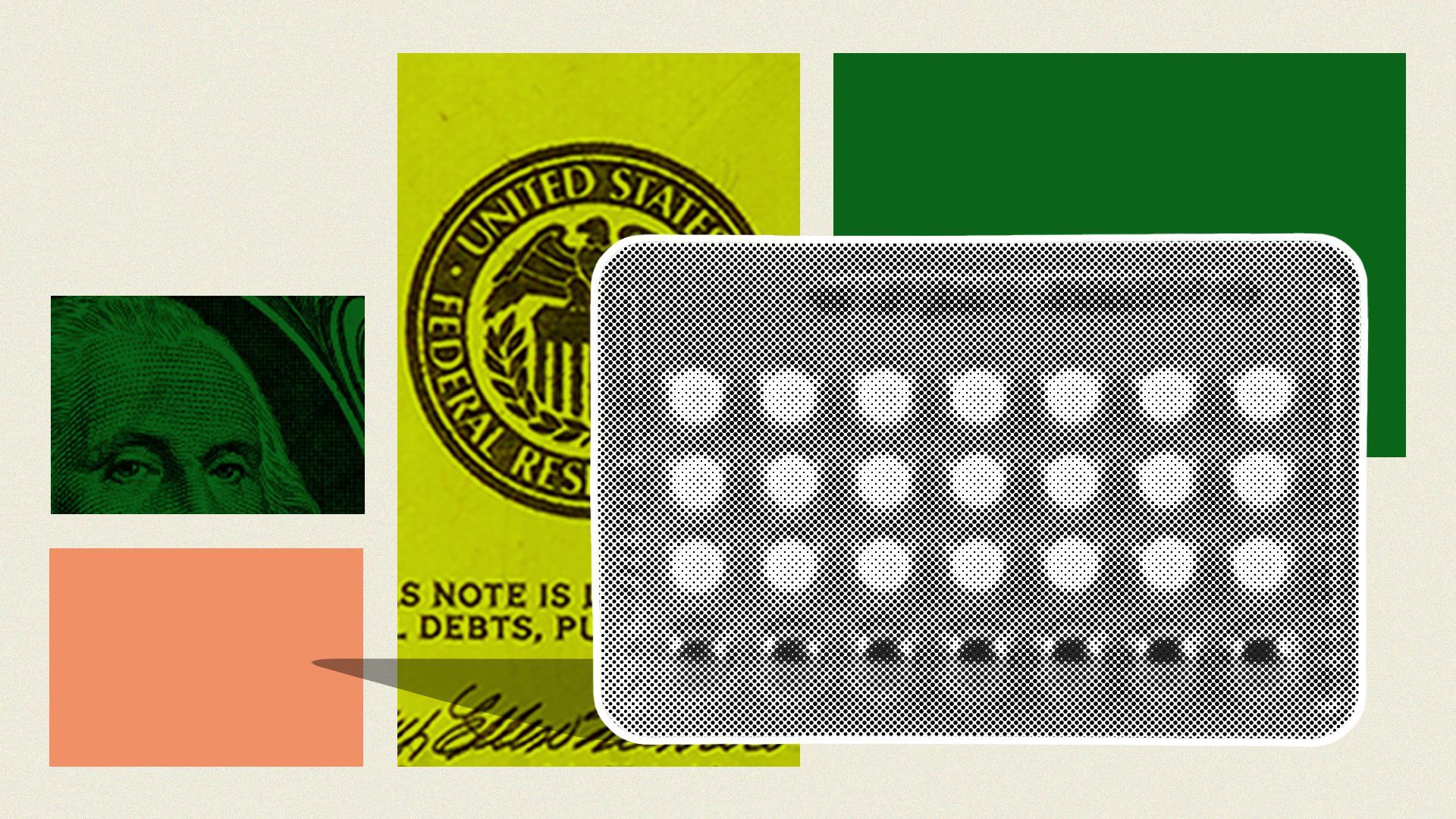Over-the-Counter Birth Control: Increased Access And Its Implications Post-Roe

Table of Contents
Increased Access and Convenience
The current system for obtaining prescription birth control presents significant barriers for many individuals. Access to affordable and convenient birth control is crucial for effective family planning.
Eliminating Barriers to Access
Obtaining prescription birth control often involves several hurdles:
- Long wait times for appointments: Scheduling doctor's appointments can be time-consuming, especially for individuals with busy schedules or limited access to transportation.
- Lack of doctors in rural areas: Many rural communities face a shortage of healthcare providers, making access to reproductive healthcare services challenging.
- High cost of prescription birth control: Even with insurance, the cost of prescription birth control can be prohibitive for some individuals, leading to inconsistent or incomplete use.
- Insurance coverage variations: Insurance coverage for birth control varies widely, leaving many individuals responsible for significant out-of-pocket expenses.
Over-the-counter birth control could remove these barriers, making it significantly easier for individuals to access the contraception they need. This increased accessibility translates to more consistent use, leading to better family planning outcomes. The convenience factor alone could dramatically improve adherence to birth control regimens.
Empowering Individuals
Access to over-the-counter birth control is about more than just convenience; it's about empowering individuals to take control of their reproductive health.
- Improved ability to manage one's own reproductive health: Individuals can proactively manage their reproductive health without needing to schedule appointments or navigate complex insurance processes.
- Reduced reliance on healthcare providers for access: This reduces the dependence on potentially limited or geographically inaccessible healthcare systems.
- Increased privacy: Obtaining birth control without a prescription enhances privacy and reduces the need to disclose personal health information to others.
This increased autonomy contributes to improved self-efficacy and agency in family planning, allowing individuals to make informed choices about their bodies and their futures. The ability to discreetly manage contraception is a significant step towards reproductive justice.
Potential Public Health Benefits
Wider access to birth control through over-the-counter availability holds the potential for significant public health improvements.
Reduced Unintended Pregnancies
Increased access to birth control is strongly linked to lower rates of unintended pregnancies.
- Improved contraceptive use: Easier access translates to more people using contraception consistently and correctly.
- More consistent use due to easier access: The convenience of over-the-counter options may lead to better adherence to prescribed regimens.
- Reduction in abortion rates (a potential but debated consequence): While not universally agreed upon, increased access to contraception is often associated with a reduction in the need for abortion services. Further research is needed to fully explore this correlation.
Studies have shown a clear link between improved access to contraception and decreased rates of unintended pregnancies. Making birth control readily available could significantly reduce the burden on healthcare systems and improve overall public health outcomes.
Improved STI Prevention
Convenient access to contraception also plays a role in preventing sexually transmitted infections (STIs).
- Increased use of barrier methods (condoms): While not all birth control methods prevent STIs, increased access to contraception can encourage the use of barrier methods like condoms.
- Greater awareness of sexual health: The increased accessibility may lead to greater awareness and proactive engagement with sexual health resources.
- Improved overall sexual health outcomes: Wider access to birth control contributes to improved overall sexual health outcomes and reduces the spread of STIs.
Comprehensive sexual health education programs alongside easier access to birth control are crucial for maximizing these public health benefits. Promoting responsible sexual health practices is paramount.
Potential Challenges and Concerns
Despite the potential benefits, the transition to over-the-counter birth control presents several challenges.
Misinformation and Self-Medication
Increased accessibility necessitates robust public health measures to mitigate potential risks.
- Need for clear and accessible information about appropriate use: Clear, concise, and easily understandable information is crucial to prevent misuse or incorrect dosage.
- Potential for misuse or incorrect dosage: The absence of direct medical supervision requires reliable and readily available information about correct usage.
- Importance of comprehensive patient education materials: Educational materials must be accessible to individuals with varying levels of literacy and health literacy.
The inclusion of telehealth support and easily accessible online resources could help address these concerns and provide individuals with the information they need. Clear labeling and readily available educational materials are crucial for responsible use.
Equity and Access for Marginalized Communities
Ensuring equitable access to over-the-counter birth control is essential to avoid exacerbating existing health disparities.
- Cost remains a barrier for low-income individuals: Even if over-the-counter, the cost of birth control may still be a barrier for low-income individuals and those without insurance.
- Language barriers: Information about over-the-counter birth control must be readily available in multiple languages to reach diverse communities.
- Lack of access to reliable information in certain communities: Efforts must be made to ensure that all communities have access to reliable information about birth control.
Subsidized access programs, targeted community outreach initiatives, and culturally sensitive educational materials are crucial steps towards ensuring equitable access for all.
Conclusion
The movement towards over-the-counter birth control presents a significant opportunity to improve reproductive healthcare access, potentially leading to reduced unintended pregnancies and improved sexual health outcomes. While challenges remain regarding misinformation, equitable access, and the need for comprehensive education, making birth control readily available could empower individuals and significantly impact public health. Further research and targeted initiatives are crucial to ensure the successful implementation of over-the-counter birth control and maximize its positive impact. The future of reproductive health hinges on expanding access to options like over-the-counter birth control and ensuring equitable access for all. Let's advocate for increased access to over-the-counter birth control and work towards a future where everyone has the power to control their reproductive health.

Featured Posts
-
 Watch 1923 Season 2 Episode 5 Online Tonight Free Streaming Guide
May 27, 2025
Watch 1923 Season 2 Episode 5 Online Tonight Free Streaming Guide
May 27, 2025 -
 Historic Florence Hosts Guccis Cruise 2026 Collection
May 27, 2025
Historic Florence Hosts Guccis Cruise 2026 Collection
May 27, 2025 -
 Miami Beach Rescue Dylan Efron Saves Two Women
May 27, 2025
Miami Beach Rescue Dylan Efron Saves Two Women
May 27, 2025 -
 Bandits Block Kankara Dutsin Ma Highway In Katsina Leading To Kidnappings
May 27, 2025
Bandits Block Kankara Dutsin Ma Highway In Katsina Leading To Kidnappings
May 27, 2025 -
 Ray Epps Sues Fox News For Defamation Jan 6th Claims At The Heart Of Lawsuit
May 27, 2025
Ray Epps Sues Fox News For Defamation Jan 6th Claims At The Heart Of Lawsuit
May 27, 2025
